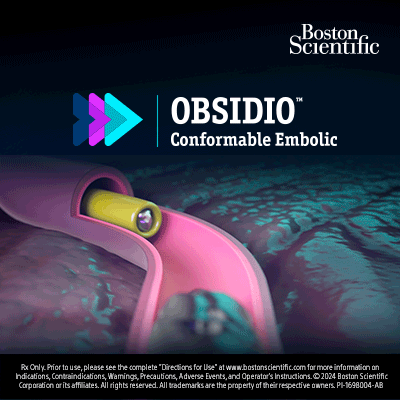SIR 2025
Interventional Oncology
Traditional Poster
72 - Yttrium-90 Radioembolization Outcomes for Androgen-Independent Prostate Cancer Metastasis to the Liver
- MA
Mohamad M. Alzein
Medical Student
Feinberg School of Medicine, United States - AG
Andrew C. Gordon, MD, PhD (he/him/his)
Assistant Professor
Feinberg School of Medicine, United States - MH
Maha Hussain, MD
Professor
Feinberg School of Medicine, United States 
Riad Salem, MD
Chief of Vascular and Interventional Radiology in the Department of Radiology
Northwestern Memorial Hospital, United States
Robert Lewandowski, MD
Professor of Radiology, Medicine and Surgery
Northwestern University, Dept. of Radiology, IR section, United States
Poster Presenter(s)
Author/Co-author(s)
The purpose of this study is to report the outcomes of patients undergoing transarterial radioembolization (TARE) utilizing yttrium-90 (Y90) for androgen-independent prostate cancer metastasis to the liver.
Materials and Methods:
Seven patients treated with Y90 TARE for prostate cancer liver lesions between January 2007 and January 2024 were retrospectively reviewed. The median age of our cohort was 60.9 years (range, 52.3-79.2 years). Demographic information is presented in Table 1. All patients underwent prior systemic therapy (median, 5 regimens; range, 1-8). Index tumor response was described through the Response Evaluation Criteria in Solid Tumors (RECIST) version 1.1. Survival analysis was calculated by the Kaplan Meier method for index tumor, liver, extra-hepatic, and time-to-progression, as well as overall survival from day of Y90 TARE. Adverse events within one month of Y90 TARE were recorded and evaluated by the Common Terminology Criteria for Adverse Events (CTCAE) version 5.
Results:
The index tumor was treated with a median dose of 95.0 Gy (range, 28.7-300.7 Gy) and activity of 1.2 GBq (range, 0.7-2.5 GBq). Imaging follow up was completed for 86% (n=6) of patients due to the early death of one patient. By RECIST criteria, 50% (n=3) of patients achieved partial response and 50% (n=3) of patients had stable disease as their best and final imaging responses. No index tumor progressed based on the RECIST criteria. Median progression was 2.3 (range, 1.3-6.9), 2.8 (range, 1.3-6.9), and 7.0 (range, 1.3-22.1) months for overall, hepatic, and extrahepatic progression, respectively. Median overall survival was 16.2 months (range, 1.0-93.2 months). One patient died within 30 days of the procedure. One patient reported CTCAE grade 3 effect: fatigue (n=1).
Conclusion:
Y90 TARE warrants further investigation in the setting of prostate cancer liver metastases. Antitumor response rates and toxicity appear within expected ranges, though the optimal timing for treatment of androgen-independent disease remains unknown. {1,2}


.jpg)